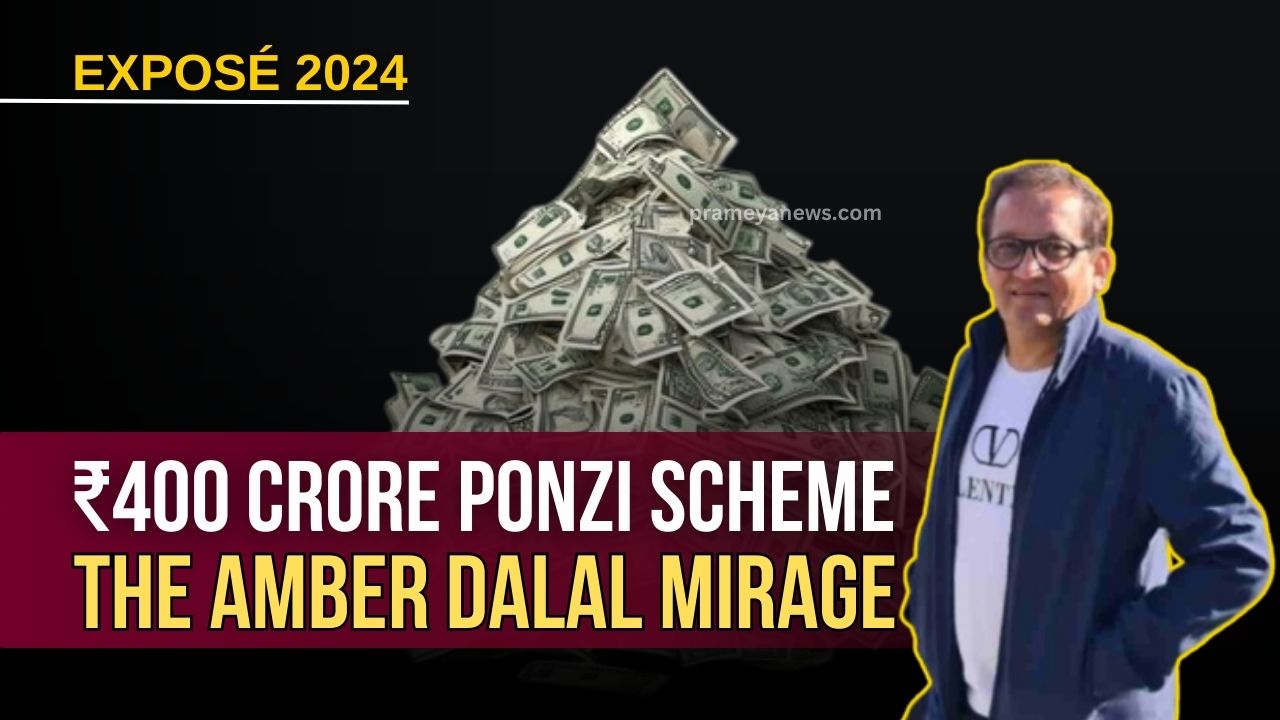

A Promise of riches, a Trail of Deceit: The Amber Dalal saga
In mid-March, a group of 55 investors filed a complaint with Mumbai police, alleging they had been defrauded by a man named Amber Dalal. What initially seemed like an isolated incident quickly ballooned into a full-blown scandal. As the Economic Offences Wing (EOW) delved deeper, the scale of the alleged deception became apparent: Dalal, operating under the guise of "Ritz Consultancy Services Company", is accused of swindling at least 675 investors out of a staggering ₹400 crores. Dalal was apprehended by the authorities in Uttarakhand on March 26. The story, pieced together from various media reports, reads like a textbook case of a Ponzi scheme, raising questions about investor due diligence, regulatory oversight, and the seductive power of lucrative returns.
The Modus Operandi: A step by step - playbook to deception
Ponzi schemes, named after the infamous Charles Ponzi, are essentially pyramid schemes where early investors are paid with the money from new investors, creating an illusion of profitability. Dalal's alleged scheme, which reportedly ran for 14 years, appears to have followed a classic five-step playbook:
The Defence: Genuine Trader or Master Deceiver?
Despite the mounting evidence, some of Dalal's investors still believe in his innocence. A Pune investor, speaking to the Indian Express, claimed that Dalal wasn't running a Ponzi scheme but was a legitimate trader with over 20 years of experience. The investor pointed to Dalal's consistent payouts until February 2024 as evidence, even mentioning a reduction in interest from 22% to 18% after the Ukraine war, seemingly adding credibility to Dalal's trading activities. The investors who had invested in Dalal did so with full faith on his investment management ability.
The Comparison: Echoes of Bernie Madoff
The investor's defense of Dalal's long-running operation draws parallels to the infamous Bernie Madoff scandal. Madoff, for decades, maintained the facade of a successful investment advisor, even fooling Hollywood celebrities and Nobel laureates. He talked big about his investment strategy but in reality was depositing the investor's fund in a Chase bank account and paying off old customers with funds from new customers. He generated consistent returns which helped him pull the wool over the eye of many. His Ponzi scheme, which lasted for over 40 years by some accounts, highlights the fact that longevity alone is not an indicator of legitimacy.
The Investigation: Unraveling the truth and seeking justice
The EOW's investigation is ongoing, and the full extent of Dalal's alleged deception is still being uncovered. The regulator, SEBI, is also under scrutiny, with questions being raised about how such a large-scale operation could have gone undetected for so long, especially considering Dalal's past run-in with the regulator a decade ago over alleged price manipulation. A decade ago, the regulator had found that Dalal's coterie was involved in rigging the price of a stock called G-TECH Info-Training.
The Aftermath: Recovering lost fortunes
For the defrauded investors, the priority now is recovering their lost investments. Authorities have reportedly invoked the Maharashtra Protection of Interest of Depositors (MPID) Act, which could pave the way for seizing and auctioning Dalal's assets to compensate the victims. The entire fiasco is still unravelling so we will have to wait and watch.
A cautionary tale for Investors and Regulators
The Amber Dalal saga serves as a stark reminder of the dangers lurking in the investment world, particularly when promised returns seem too good to be true. It underscores the importance of thorough due diligence, skepticism towards extraordinary claims, and the need for robust regulatory oversight to prevent such schemes from flourishing. This case also highlights the psychological aspects of investment fraud, demonstrating how trust, social proof, and the allure of easy money can cloud judgment and lead even seasoned investors astray. The long-running nature of the alleged scheme raises questions about the effectiveness of existing safeguards and the need for proactive measures to detect and prevent such frauds before they reach a massive scale. As the investigation unfolds and legal proceedings commence, the case will undoubtedly have broader implications for investor protection, regulatory reforms, and the ongoing battle against financial cheating activities in India. The hope is that this incident will serve as a catalyst for stronger regulations, increased investor awareness, and a more vigilant approach to identifying and dismantling Ponzi schemes before they inflict widespread damage.
DISCLAIMER: This brief is based on information from publicly available sources and reflects the author's interpretation of the topic and do not reflect Prameya's or Prameya News7 editorial stance.